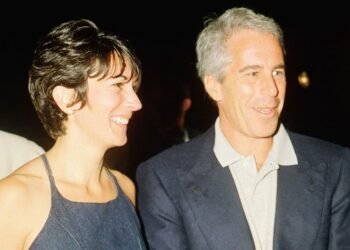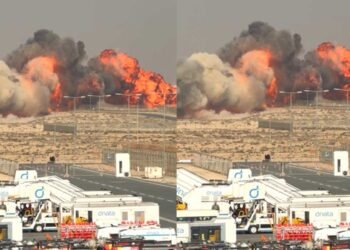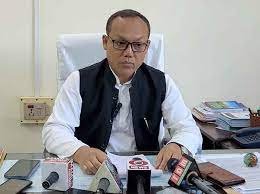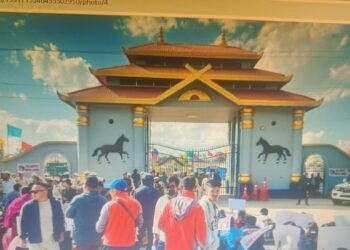Chief Minister N. Biren Singh of Manipur, surrounded by escalating political and ethnic tensions, sought divine intervention at the Maha Kumbh Mela in Prayagraj. Singh met with senior BJP leader Ravi Shankar Prasad before taking a holy dip at the Triveni Sangam, expressing hope for peace and prosperity for Manipur and the nation.
BY PC Bureau
Chief Minister N. Biren Singh of Manipur, facing threats to his leadership from both his own party members and the Kuki community, took a holy dip at the Maha Kumbh Mela in Prayagraj. Singh met former union minister and senior BJP leader Ravi Shankar Prasad at the Maha Kumbh before proceeding to the Sangam.
“It was a pleasure meeting Hon’ble MP and senior party leader Shri @rsprasad Ji at the Maha Kumbh 2025 before we took the holy dip at Triveni Sangam. Joined by my Hon’ble cabinet colleagues and Hon’ble MLAs, we stand together in prayer, seeking divine blessings for our people and the nation. May this sacred gathering strengthen our collective spirit and guide us toward a brighter future,” Singh posted on X.
ALSO READ: Manipur BJP Rift: Anti–CM Faction Demands Early Removal of Biren Singh
Earlier, amid escalating tensions within the ruling BJP in Manipur, Chief Minister Singh and several of his party MLAs reached Prayagraj to participate in the sacred event. This move comes as senior BJP leadership reportedly plans to replace Singh after the upcoming assembly session. In a tweet, Singh expressed his gratitude for being in Prayagraj for the auspicious Maha Kumbh Mela, a divine gathering that occurs once every 144 years. He mentioned that he would be taking the sacred dip along with his cabinet colleagues and MLAs, praying for peace, harmony, and prosperity for Manipur and the entire nation.
It was a pleasure meeting Hon’ble MP and senior party leader Shri @rsprasad Ji at the Maha Kumbh 2025 before we take the holy dip at Triveni Sangam.
Joined by my Hon’ble cabinet colleagues and Hon’ble MLAs, we stand together in prayer, seeking divine blessings for our people… pic.twitter.com/BknSIcbyOR
— N. Biren Singh (@NBirenSingh) February 6, 2025
Singh left for Prayagraj after holding a meeting with BJP in-charge for the Northeast, Sambit Patra. However, Home Minister Amit Shah, who reportedly summoned Singh and other Manipur MLAs and ministers to Delhi, did not meet him, which is seen as a rebuff in political circles.
The political crisis within the BJP has intensified, with senior leadership deciding to replace Singh after the assembly session. An anti-Chief Minister faction within the party is demanding his early removal, arguing that several BJP MLAs are dissatisfied with his leadership. The crisis has placed additional pressure on the Kuki MLAs, who now face a dilemma: if they back Singh’s continued leadership, they risk alienating their community; if they oppose him, they may trigger political instability.
Insiders claim that senior leadership at the Centre has assured the anti-Chief Minister camp that Singh will be ousted sometime in March and has advised them against initiating a no-confidence motion during the upcoming assembly session. Reports also indicate that opposition parties and several BJP MLAs might introduce a no-confidence motion in the state assembly starting February 12.
Compounding the political unrest are ongoing ethnic tensions in Manipur, particularly between the Meitei and Kuki communities. Since May 2023, the state has experienced significant violence, resulting in over 250 deaths and displacing at least 60,000 people. The conflict has created severe humanitarian challenges, with many displaced individuals living in poor conditions in relief camps.
In December 2024, Chief Minister Singh publicly apologized for the ethnic unrest, expressing regret over the loss of lives and displacement of residents. Despite these challenges, he emphasized ongoing efforts to restore peace and normalcy in the state.
The convergence of political instability and ethnic conflict has placed Manipur at a critical juncture. As Chief Minister Singh seeks spiritual guidance at the Maha Kumbh Mela, the state’s future remains uncertain, with both political and social challenges demanding urgent attention.













